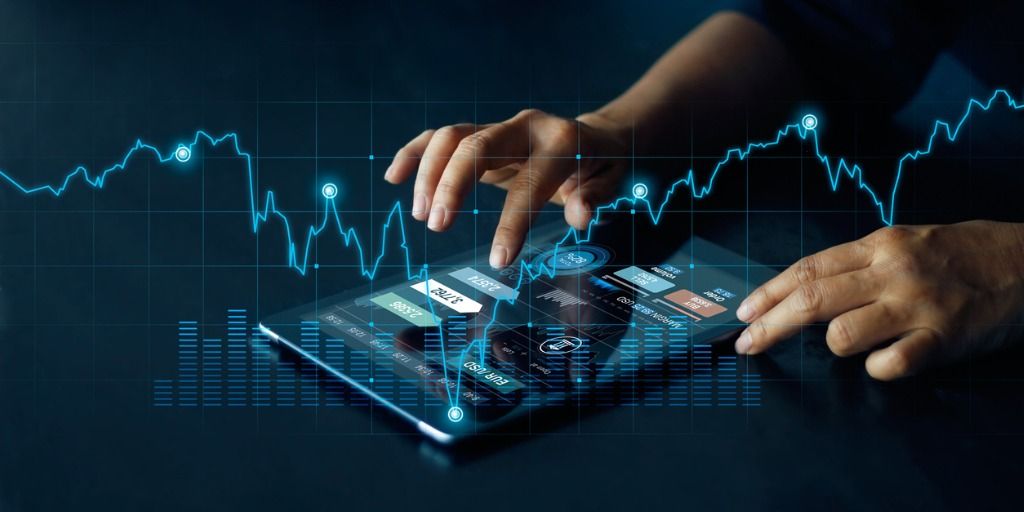Trading is often portrayed as a game of numbers, charts, and strategies. But behind the glowing monitors and price patterns lies a much deeper battle, the mental and emotional discipline of the trader. While technical knowledge and market analysis are undeniably important, seasoned professionals understand that the real edge comes from mastering the inner game. Trading psychology is what separates consistent performers from those who struggle to maintain success over the long term.
In this article, we’ll explore why psychology matters more than most people think, how it impacts decision-making, and what traders can do to build mental resilience and discipline.
Emotional Intelligence and the Professional Trader
Emotional intelligence, the ability to recognise, manage, and regulate emotions, plays a critical role in trading outcomes. Traders who lack emotional self-awareness often fall prey to impulsive decisions. On the other hand, those who can acknowledge their emotional state without reacting blindly tend to make clearer, more objective choices.
For instance, a trader who feels fear creeping in during a drawdown might pause, reassess risk exposure, and reduce position sizes rather than panic-sell at a loss. Similarly, traders who feel overconfident after a series of wins must remain grounded to avoid reckless risk-taking.
Professional traders train themselves to pause and think, even in the heat of the moment. That split-second of awareness can mean the difference between a strategic exit and an emotionally charged mistake.
Developing a Resilient Trading Mindset
A resilient mindset is built not just on knowledge but on attitude. In trading, setbacks are inevitable. What separates professionals from amateurs is how they respond.
A growth mindset, which views challenges as opportunities to learn and adapt, helps traders endure losses and emerge stronger. In contrast, a fixed mindset often leads to discouragement and quitting after failures.
Resilience also involves reframing. Rather than internalising a loss as a personal failure, professionals see it as feedback. This shift in perspective allows traders to stay focused and avoid spiralling into self-doubt or revenge trading.
Confidence and humility must coexist. Confidence allows a trader to execute without hesitation. Humility keeps that confidence in check, recognising that no system is perfect and no one is immune to errors.
Building a Disciplined Trading Routine
Discipline is not a trait reserved for the naturally self-controlled. It’s a practice, and routines are the foundation.
A consistent daily routine helps traders start their day with focus and clarity. This may include:
- Reviewing economic calendars
- Analysing charts and key levels
- Checking on open positions and exposure
- Performing a self-check on emotional state and readiness
Before entering a trade, a professional trader often mentally reviews a checklist. Are market conditions favourable? Is the trade aligned with the plan? Am I trading out of boredom or impulse?
After the trade, reflection is just as important. Maintaining a trading journal provides insights into patterns over time. Many traders discover that their losses correlate more with lapses in discipline than poor analysis.
Risk Management as a Psychological Tool
Risk management is often taught as a mathematical necessity. But it’s also a psychological one. A trade that feels too large relative to one’s emotional risk tolerance can cloud judgment, triggering stress responses that lead to poor decisions.
Position sizing is not just a technical choice but a mental safeguard. Trading smaller can reduce emotional swings, allowing a trader to think more clearly.
Additionally, diversification helps reduce the psychological burden. When one trade isn’t make-or-break, it’s easier to remain objective. Professionals tend to detach emotionally from any single position, focusing instead on long-term edge and execution consistency.
Practical Tools and Strategies to Master the Inner Game
There’s no one-size-fits-all solution to building trading psychology, but several tools have proven effective over time.
- Mindfulness and meditation train the brain to remain calm in the present moment. Even five minutes of breath-focused meditation before trading can improve focus and reduce emotional reactivity.
- Cognitive behavioural techniques (CBT) help traders identify and reframe irrational beliefs. For example, replacing “I can’t afford another loss” with “Every trade has a predefined risk I’ve accepted” rewires how losses are perceived.
- Mental rehearsal involves visualising trade scenarios and rehearsing ideal responses. This builds neural pathways that help reinforce discipline during live trading.
- A trading journal that includes emotional reflections, thoughts before and after trades, and lessons learned is perhaps one of the most powerful tools a trader can use. Over time, patterns emerge, and with awareness comes change.
The Long Game: Sustaining Psychological Edge
Mastering the inner game isn’t a one-time event. It’s a continuous journey. Professional traders treat mental development with the same seriousness as they treat market research.
Avoiding burnout is key. That means taking breaks, maintaining work-life balance, and managing stress levels. Trading in a constant state of mental fatigue leads to poor decisions.
Many successful traders also lean on support systems—mentors, accountability partners, or trading communities—to share experiences, learn from others, and stay grounded.
Above all, professionals remain students of the game. They read psychology books, revisit their journals, and reflect often. Just as the market evolves, so too must the trader’s mindset.
Conclusion
In the world of professional trading, it’s not just about being right. It’s about being consistent. And consistency comes from psychological discipline, not from chasing the perfect strategy.
By mastering the inner game, traders build the mental edge needed to weather volatility, manage risk wisely, and stay calm amid uncertainty. The mind becomes not a barrier, but a powerful ally.
If you’re ready to dig deeper into the principles of trading psychology and how it shapes your performance in volatile markets, click to read more.

